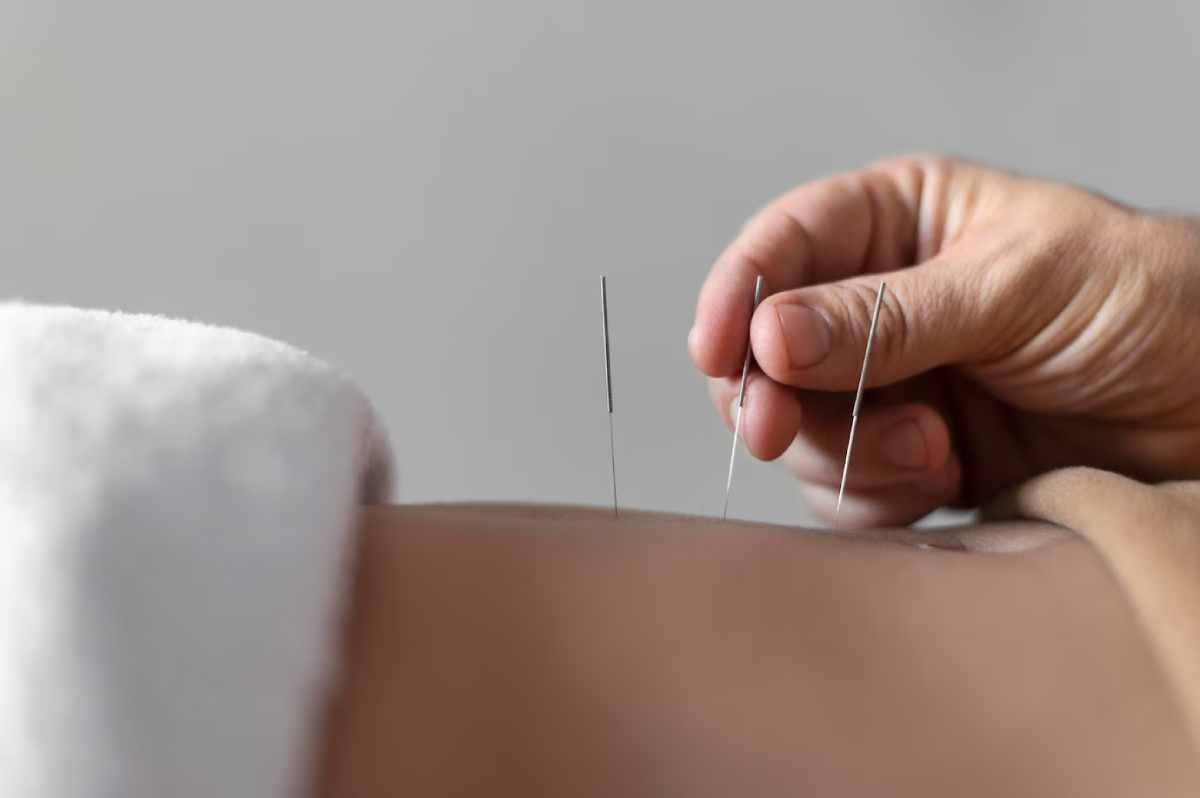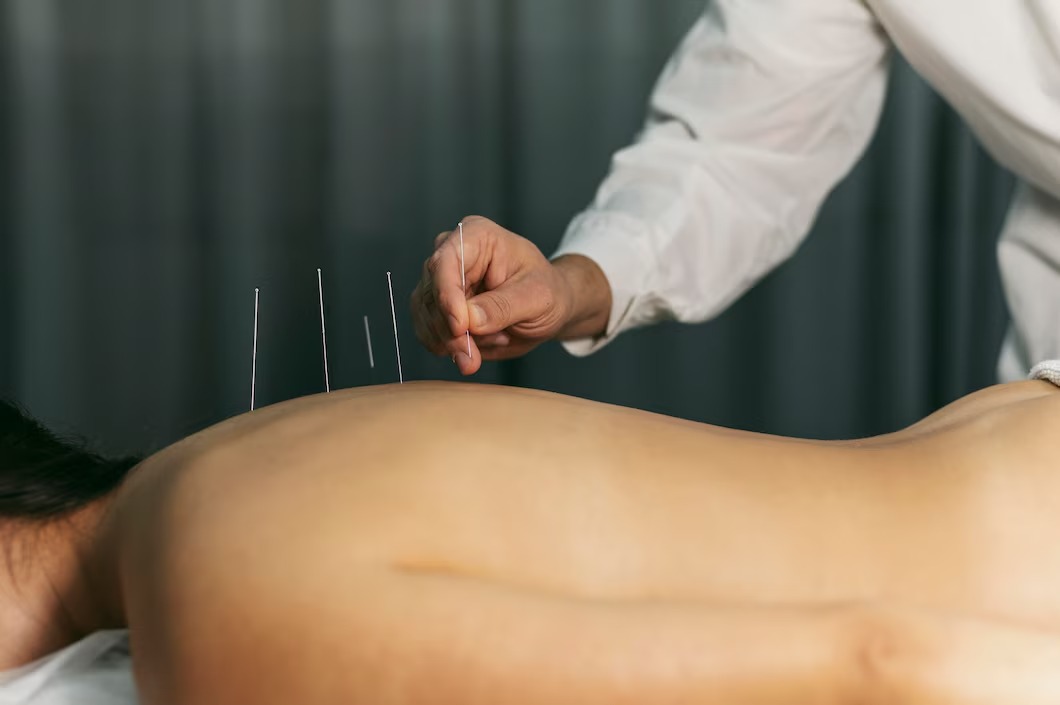
Acupuncture for Pain Relief: Does It Really Work?
Millions of people around the world suffer from chronic pain. Some look for alternative treatments, like acupuncture therapy, for holistic pain relief. This practice comes from traditional Chinese medicine and has been performed for thousands of years. Its goal is to re-establish a correct energy flow (Qi) in the body. But does acupuncture relieve pain? This guide explores acupuncture, its benefits and whether it’s a potential pain relief option.
What is Acupuncture?

Acupuncture therapy is a central part of traditional Chinese medicine (TCM). It involves inserting thin needles into specific body points. These points connect to energy pathways, or meridians, that regulate bodily functions. TCM believes that blocked or unbalanced Qi can lead to pain and illness. Acupuncture seeks to restore this balance and promote natural healing.
How Acupuncture Works
Modern science suggests that acupuncture therapy may stimulate the nervous system. This triggers the release of the body’s natural painkillers and improves blood circulation. These effects can reduce inflammation, relax muscles, and relieve overall holistic pain. Research also shows that acupuncture may affect neurotransmitters and hormones. This can lower pain perception and enhance well-being.
The Science Behind Acupuncture for Pain Relief
1. Acupuncture and Chronic Pain
Many studies have looked at how acupuncture therapy helps with chronic pain like arthritis, lower back pain, and migraines. A 2018 meta-analysis in the Journal of Pain found that acupuncture relieved pain better than sham treatments or no treatment.
How It Helps:
- Stimulates endorphin and serotonin release, reducing pain perception.
- It improves blood flow to affected areas, promoting healing and reducing inflammation.
- Relaxes muscles and eases tension-related pain.
2. Acupuncture for Back and Neck Pain
Back and neck pain are common reasons for seeking acupuncture. Research from the National Institutes of Health shows that traditional Chinese medicine, such as acupuncture, can ease pain and boost movement.
Benefits for Back and Neck Pain:
- Reduces muscle stiffness and enhances flexibility.
- Lowers the need for pain medications.
- Provides long-term holistic pain relief with minimal side effects.
3. Acupuncture for Migraine and Headaches
Studies show that acupuncture therapy can lessen the frequency and severity of migraines and tension headaches. The American Migraine Foundation recognises acupuncture as a valuable preventive treatment.
How It Works:
- Reduces muscle tension and stress, common migraine triggers.
- It lowers inflammation and improves circulation to the head and neck.
- It helps regulate neurotransmitters that aid in pain relief.
4. Acupuncture for Joint and Arthritis Pain
For those with osteoarthritis or rheumatoid arthritis, acupuncture can provide natural pain management. An Annals of Internal Medicine study found that acupuncture helped reduce knee pain. It also improved function for patients with arthritis.
Key Benefits:
- Eases stiffness and joint discomfort.
- Reduces inflammation in joints.
- Enhances mobility and overall quality of life.
Acupuncture vs. Conventional Pain Treatments
Many people see acupuncture as a way to complement or replace standard treatments. Here’s how it compares:
Treatment Benefits Drawbacks
Acupuncture: This method is drug-free and has few side effects. It promotes healing for the whole body, but you may need several sessions. Results can differ from person to person.
Pain Medications: They offer quick relief and are easy to access. However, there’s a risk of dependency, and side effects may include drowsiness.
Physical Therapy: This option strengthens muscles and improves mobility.
- Requires commitment.
- It may not provide immediate relief.
- Surgery can offer permanent relief for severe conditions.
- It is invasive, costly, and involves a long recovery.
Mixing acupuncture with regular treatments often gives the best results.
What to Expect During an Acupuncture Session

If you’re thinking about acupuncture therapy, knowing what to expect can help. Here’s a look at a typical session:
Step 1: Consultation
The practitioner reviews your medical history, pain levels, and health. This helps identify the best acupuncture points to target.
Step 2: Needle Insertion
Thin, sterilised needles are inserted into specific points. You might feel a slight tingling or mild pressure, but the pain should be minimal.
Step 3: Relaxation Period
The needles stay in place for 15-30 minutes while you relax. Some people feel calm or even fall asleep during this time.
Step 4: Post-Treatment Sensations
Afterwards, you may feel energised or deeply relaxed. Some experience immediate relief, while others notice progress over several sessions.
Potential Risks and Considerations
Acupuncture is generally safe, but it’s vital to see a certified practitioner. Key considerations include:
- Minimal Side Effects: Mild bruising, soreness, or light-headedness can happen but usually resolve quickly.
- Contraindications: Not suitable for those with bleeding disorders or pacemakers.
- Not a One-Size-Fits-All Solution: Results depend on individual conditions and responses.
Is Acupuncture Right for You?
If you seek holistic pain relief, acupuncture might be worth considering. Here are factors to think about:
Acupuncture May Be a Good Choice If You:
- Prefer natural, drug-free pain management.
- Have chronic pain that hasn’t responded well to other treatments.
- Are open to alternative healing methods like traditional Chinese medicine.
- Want to reduce reliance on painkillers.
Acupuncture May Not Be Ideal If You:
- Expect instant results from one session.
- Are uncomfortable with needles.
- Have a medical condition that contraindicates acupuncture (consult a healthcare provider).
Acupuncture Approaches

Acupuncture is known to be an effective holistic pain relief technique. After decades of research, acupuncture therapy has also been endorsed by principles of traditional Chinese medicine and modern studies, bringing a drug-free alternative able to manage chronic pain, migraines, arthritis, and many others. Results vary, but many experience considerable pain relief and improved well-being. If you’re thinking about acupuncture, check with a licensed provider to see if it’s right for you. Regular sessions can improve your health in addition to treat your pain with acupuncture.


